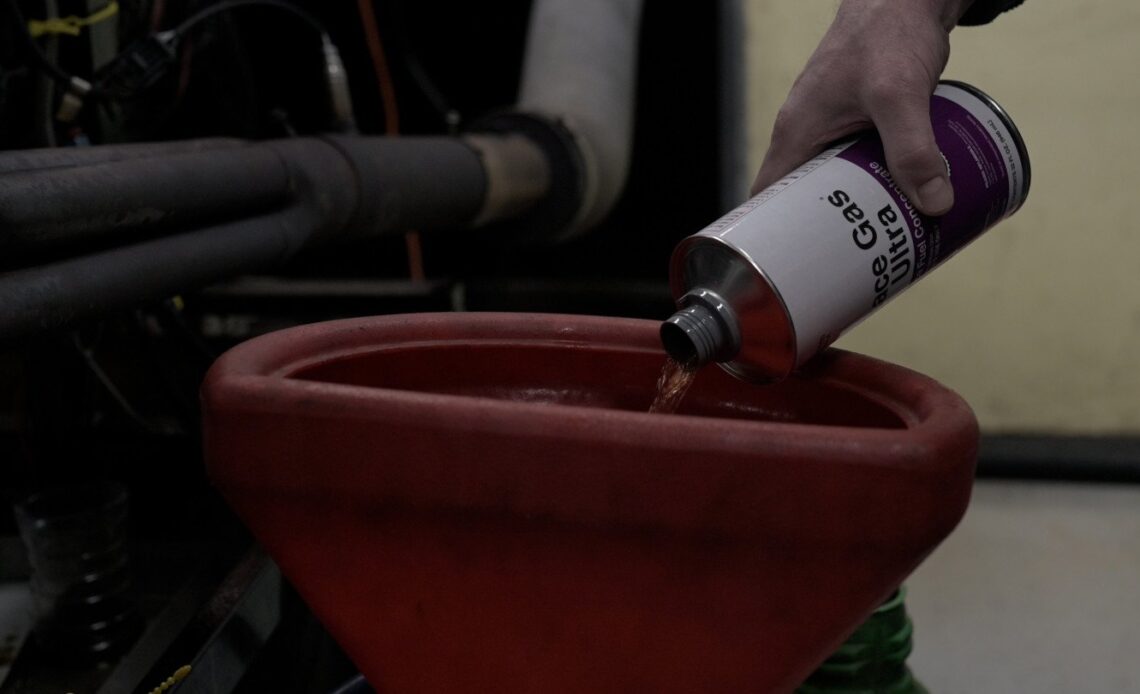In the late ’90s, Dan Muldowney was racing at a track where he bought 110-octane fuel for his car. He thought everything was fine. The gas was purple and the pump said it was 110 octane. He went out on the track for practice, and by the third lap, he had melted a hole in three out of six pistons.
Race gas contains many chemicals that fall into three primary groups: fuel hydrocarbons, oxygenate, and organometallic compounds. Each group of compounds is found in typical gasoline at the pump. But Race Gas uses its own proprietary recipe to enhance the performance of the fuel to the same level as refined racing fuel.
“I found out the fuel had been sitting there and it collected a bunch of water, which caused some oxidation and formation of some pretty bad stuff like tars and varnishes,” says Muldowney. “It really wasn’t 110 octane.” That time it cost him $28,000 to rebuild the engine. When he did it again a few months later, it was $60,000 because it took out the crank, too.
Muldowney owns Motorsports Fuel and Equipment, makers of Race Gas Fuel Concentrate. What is a fuel concentrate? That’s a good question, and one we wanted to know more about. Many people get confused (including this writer), thinking it is another octane booster, which it is not. Some fuel additive products are just glorified snake oil. They say it “boosts octane,” but it doesn’t give the fuel more energy as a result.
Race Gas is different because it is a concentrated fuel that, when blended with pump gas, such as 87 or 93 octane, will effectively make that gasoline into a bonafide 101- or 110-octane race fuel with all of the energy density of a high-quality and refined racing fuel. And it’s quite a bit cheaper, too.
Muldowney says that after his experience with bad race fuel and two blown engines, he wanted to find a way to test the fuel in the field. But he found out that’s prohibitively expensive. So he went at it from another direction.
“I spent several years researching the difference between racing fuel and regular pump fuel,” he says. “And along the way, I ran into some former petrol chemists that turned me on to different data sources. Some of them were from the US government going back to World War II, when piston-powered fighter planes required much higher octane fuels than were available at the time. They tested different constituent components of gasoline and how they function and work together.”
Click Here to Read the Full Original Article at DragzineDragzine…


